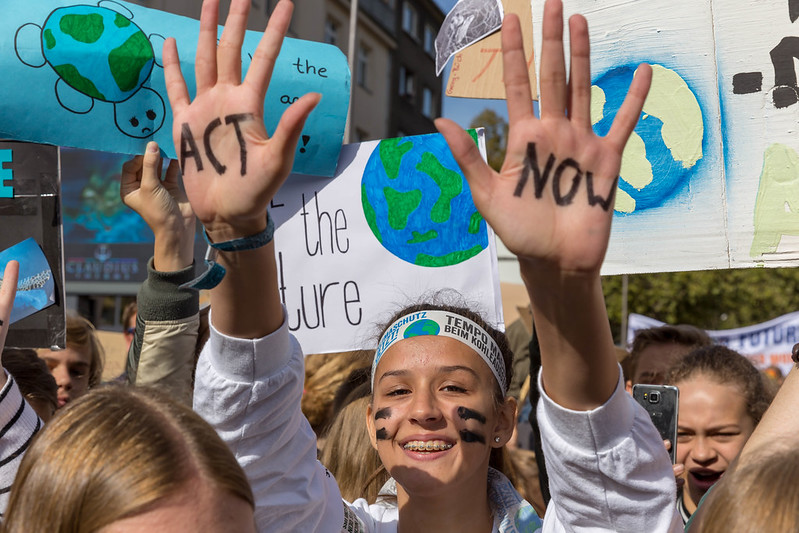When the EU touts its global power, discontent usually begins at home – starting with its powerful private sector, exasperated by ever-increasing, complex legal constraints. Before long-term benefits are clearly understood by European companies, knee-jerk reactions to transition costs surface in the policy debate. This is nothing new, right?
The thing is that this is only the beginning of their troubles. EU consumers want justice in global supply chains, climate action is young EU citizens’ top concern, and intersectionality is no longer a revolutionary concept in policymaking. A striking example of this democratic legitimacy, the proposed directive on corporate sustainability due diligence (CSDDD), is currently doing very well in the European Parliament. Private sector backlash was immediate, calling the directive unrealistic and impossible to implement.
It’s true that the directive is somewhat zealous. Moving on from ‘simple’ reporting obligations for environmental and social governance (ESG), the directive hits target companies – large and high-impact EU companies, plus relevant non-EU companies – with a triple whammy. First, they will have to not only identify the negative human rights and environmental impacts of their activities, but also prevent them whenever and wherever possible. Second, this applies to their entire value chains, no matter how indirect the business relationship. Third, if they don’t do it right, they will have to pay the price for it – that’s civil liability. All in all, there might be ground for corporate panic.
What does this have to do with EU foreign policy and international partnerships? A lot, actually.
By levelling the playing field for Member States’ companies, the CSDDD helps to harmonise the EU’s brand of external engagement. In a tense geopolitical context, Team Europe’s values-based offer to the world justifies its wider mandate in sustainability policy.
Moreover, there is a way for EU policymakers to alleviate the CSDDD’s burden on the private sector, and it can be found exactly where corporate activities take place. We need more eye-to-eye dialogue with partner countries, local communities and civil society to ensure standards and regulations are effectively implemented and respected.
Asking too much of the private sector?
The new directive is a welcome framework to prevent corporate impunity on a range of global issues, from labour exploitation to deforestation. It is a crucial step in the race to meet the Paris Agreement commitments and the Sustainable Development Goals. If anything, it should have been put in place sooner.
The problem is that it seems to be asking EU corporations to fix – single-handedly – complex dynamics embedded in the economic, societal and cultural fabric of third countries. Its broad scope implies that European companies will be liable for, say, child labour and gender inequality in faraway corners of their value chain, without much incentive to consult with the affected communities. Uninformed companies may respond with short-term fixes, thus delaying long-term progress for everyone involved.
Of course, European companies are not helpless players on the global stage, nor will they be left without support. The ‘Sustainability in Global Supply Chains’ Team Europe Initiative will support the implementation of due diligence legislation on the international stage. But once again, this method may end up treating local communities’ agency as an afterthought, a bullet point in stakeholder engagement procedures written onto a PowerPoint presentation.
Trust in international partnerships
Acting unilaterally on issues affecting non-EU countries is a common grievance from our more economically vulnerable global partners. Examples abound, from tensions with ASEAN over the Carbon Border Adjustment Mechanism, to accusations of tying aid to European ‘ideology’ – as recently illustrated in post-Cotonou negotiations. A flurry of ongoing global crises is entrenching the perception that the EU doesn’t fully understand the socio-economic woes of the so-called Global South. This disconnect, on top of growing disinformation on the EU’s geopolitical intentions, can damage the Union’s international standing.
Though the EU definitely shouldn’t compromise on human rights and the green transition, its strategy needs a change of tone.
This means empowering local communities to have a say in developing solutions that would work for them. It’s also true of the EU’s Global Gateway strategy, under which communities are consulted during project development. Their involvement should be supported at all stages, with sectoral dialogues and on cross-cutting issues such as gender equality. Local actors are best informed on what impacts their communities and how to improve their situation. Yet they may lack the avenues and know-how to take effective action.
Besides repairing and strengthening our development partnerships, this approach could reassure the European private sector. Dialogue with local partners would provide more predictable – and likely more positive – ESG results. To tackle sensitive issues around CSDDD, participation from civil society is absolutely paramount. The many challenges encountered by international partnerships to end child labour in cocoa production are a testimony that holistic approaches are necessary.
European companies may well overcome the incoming tsunami of environmental and social requirements. It was high time for the European Commission to open this can of worms anyway, and the CSDDD can strike a compromise between unleashing Europe’s private investment power and safeguarding sustainability. Clear mechanisms and incentives to engage with affected communities are essential to achieve these ambitions.
If EU policymakers solve this governance problem, they might kill three birds with one stone, renewing trust with international partners, as well as empowering their civil society, while also reducing corporate fears by making due diligence a little less overwhelming.
To mark International Women’s Day on 8 March, this Expert Commentary is part of a week-long series to highlight the insights and expertise of some of our most talented young female researchers.
About the Author


